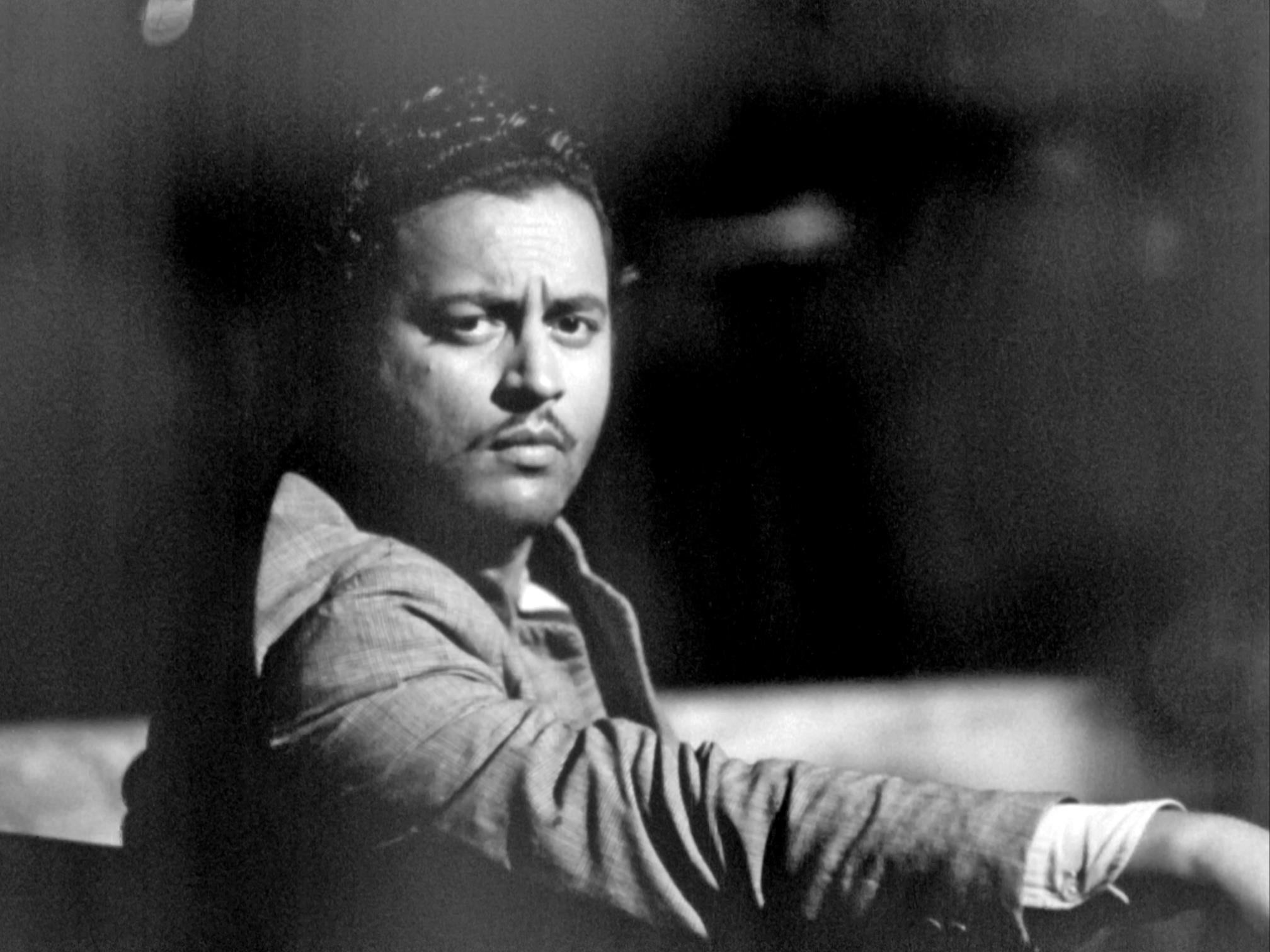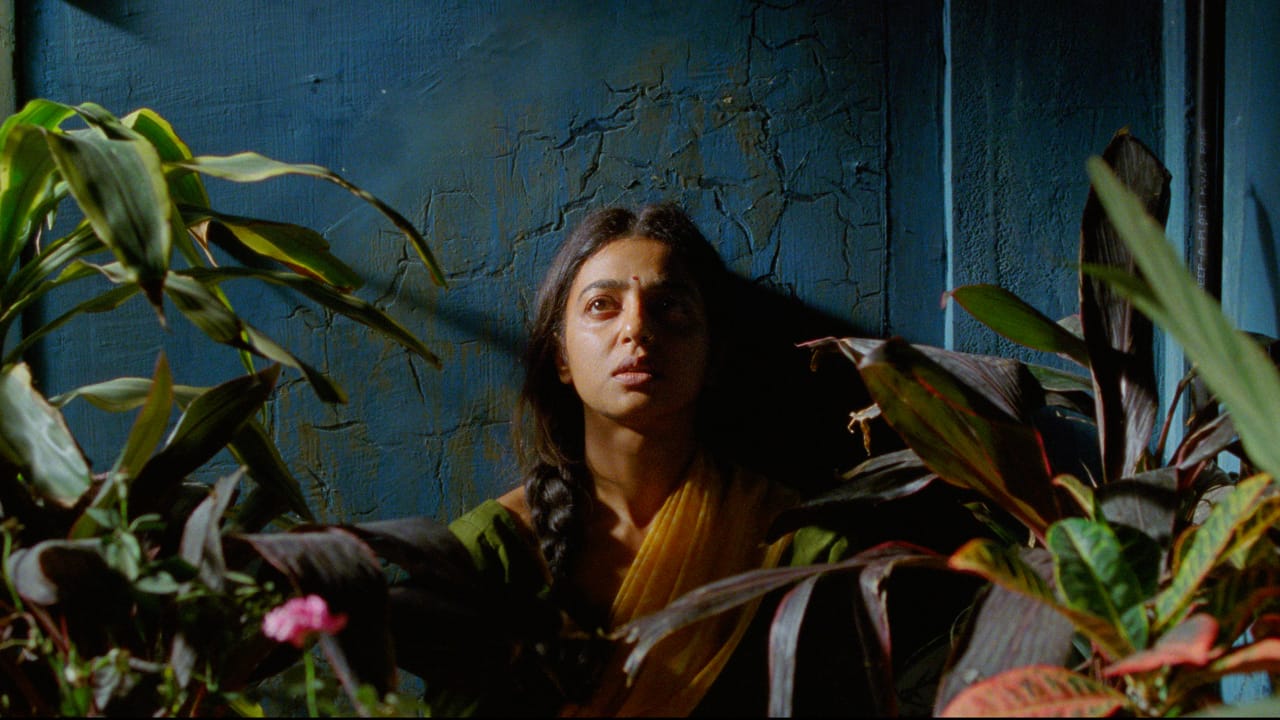Doesn’t it happen that sometimes, you can sieve through an actor who is performing on-screen? The dialogue delivery, the expressions of the emotions, stirs your soul in a way that it feels as if it would pierce through your heart, as if you have a gut feeling about the actor behind the character, regardless of the era the film belongs to. This is my relation with Guru Dutt, the humanist. I wish to pull out from memoirs of time and talk endlessly over a breezy evening, wavering our margarita glasses.
With every succeeding film, post Pyaasa (1957), your heart will shrink tighter, amplified by the deeply harrowing lyrics that would leave you motionless, trampled, while you weep along with him. When he moans over the treacherous opportunistic world in Pyaasa, ‘Yahaan ik khilona hai insaan ki hasti, Yeh basti hai murda paraston ki basti, Yahaan to jeevan sey hai maut sasti, Yeh duniya agar mil bhi jaye to kya hai’, the wilderness of the each millennial’s network appears to be fallacious.
Dutt’s personal tragedy, expectations and experiences, layered each of his character which apparently glows out of his fading grim and transfixed gestures of disdain. To me the tracing of tragedies has never been so accurate in Bombay cinema with poetic connotations and seamless camera-art which was done in Dutt’s film by the legend, VK Murthy. The impeccable lighting alone, sets up the continuum of emotions of lovelorn in the song, ‘Waqt ne kiya kya haseen sitam, Tum rahe na tum, hum rahe na hum’ (in Kagaz Ke Phool). Likewise the song, ‘Saaqiya aaj mujhe Nind nahi aayegi, Suna hai teri mehfil, Me rata jagaa hai’ is still awed upon its cinematic marvel of focusing on the main dancer by the means of lighting while shadowing the allied dancers.
Indeed! He is Guru Dutt and he has this charisma, dank, austere and blossomed with realism to house a personal bias in you. But if, considering this as a chit-chat with him, then I am surely restless to babble about things in which the two of us, may quite actually not agree upon. So, here it goes. Sorry, Guru Dutt, but your representation of a virtuous woman didn’t sound appropriate to me in some of your films. I know a film can demand a character to be from vulnerable to self-centred regardless of what the gender be, undoubtedly, but when certain traits are common to observe in female leads in most of the film, then maybe we have established likeable traits of a likeable woman.
So, here it goes. Sorry, Guru Dutt, but your representation of a virtuous woman didn’t sound appropriate to me in some of your films. I know a film can demand a character to be from vulnerable to self-centred regardless of what the gender be, undoubtedly, but when certain traits are common to observe in female leads in most of the film, then maybe we have established likeable traits of a likeable woman.
In Mr. & Mrs. ’55 (1955), Anita’s (played by Madhubala) realisation of love and the conviction to settle down with Pritam (played by Guru Dutt) occurs after she observes his sister-in-law savour household chores. This is broadly how the conversation between Anita and Pritam’s sister in law goes:
Anita: “…chaar baras mein teen bachhe!, itni jaldi jaldi bachhe hona theek nahi, aurat ki azaadi khatam ho jaati hai”
(It’s been 4 years of your marriage and you already have 3 kids! It’s not good to have children so quickly. Doesn’t it hamper the freedom of a woman?)
Pritam’s Sister-in-law: “…ghar ke kaam kaaz mein hin toh grihasti ka sukh hai. Kaisi Azaadi, jo aurat apne bal bachhon ko bojh samjhe aur unse azaadi chaahe, woh bhala maa kaise kehla skti hai”
(The real happiness of married life lies in doing the household work. What is the meaning of that freedom, if a woman considers her children as a burden, she can’t be called a mother.)
Anita: “Kya aapke pati peette bhi hai kabhi aapko”
(Does your husband beat you, sometimes?)
Pritam’s Sister-in-law: “Tan man se pyaar wahin karte hain”
(He also loves me wholeheartedly with body and mind.)
Anita, rushes to the balcony and swirl herself in an upsurge of oozing passion and remorse. This is followed by a song sequence, “Udhar Tum Hasin Ho Idhar Dil Jawaan Hai” and the heroine who has been squabbling all the while, in the turn of this incident, falls head over heels for Pritam. Guru Dutt, the very portrayal of Anita’s aunt who is a headstrong feminist, in this film of yours doesn’t align with what feminism stands for. At least not blacklisting every male and proposing celibacy for a woman.
The character of Choti Bahu in ‘Sahib Bibi Aur Gulam’ (1962) was a cult of its own kind, for it was uncanny in mainstream Hindi Cinema to project a woman’s craving for sexual desires, so explicitly. The song, “Na Jaao Saiyan, Chhuda Ke Baiyan, Kasam Tumhaari Main Ro Padungi, Ro Padungi” shows Meena Kumari, seductively pressing her husband to not to go to a courtesan. Yes, it was a pleasure to see that you magnified on the emotional deluge of a woman, rather than making her vamp for having alcohol and for asking her husband to satiate her sexual needs.
It must have been completely bizarre for the audience to absorb the male lead who is deeply faithful and devoted to his poised turned obnoxious mistress. The mistress who disregards the role that has been assigned to her by the virtue of her class and gender, that is to occupy herself around getting jewellery made for her. The journey of an elegant, cultured daughter-in-law to a drunk self-destructive wife, was displayed with utmost empathy. No, doubt I have to credit you for that.
The plight of sex workers cannot be better penned down than the song “Jinhe naaz hai hind, Par wo kahaan hai”. I cannot be more blown away by the satirical manner you pointed straightly at entire society that ill-treats sex workers. Indeed, that was the golden age of Indian cinema and you were the Orsen Welles of it. More than 60 years of the film release, and it’s still rare to find films where a prostitute is shown equivalent to any other person, who can love selflessly, with his/her work being like any other source of livelihood.
Well, I get swayed away when it comes to you, yes, the personal bias I sometimes regret to have for you, Guru Dutt. Can’t complain, it’s your charm. The charm, the eloquence with which you enticingly detailed out the beauty of Jamila with the famous Mohammad Rafi’s masterpiece song, “Chaudhvin ka chaand ho, yaa aafataab ho, Jo bhi ho tum khudaa ki kasam, laajavaab ho”. But, when the same Jamila (played by Waheeda Rehman) shields her husband Aslam (played by Guru Dutt) from her brothers because of his pretentious infidelity, she defends him saying,
“Ammi aapne mujhe ladkpan se sikhaya ki shauhar ke paaon ke neeche jannat hoti hai, aaj mein wahin jannat lena chahti hoon toh tum aare aana chahti ho….Jitni der naa aaye, raat bhar naa aaye intezaar karungi, wakt aaye faatima ki tarah khana khilaungi, paon dabakr sulaungi. Jannat bibi ko paon dabakr hin milti hai….mein inki biwi nhi kaneez hoon (Mom, you have always taught me that a woman’s abode is in her husband’s feet. Today I want to take that pleasure and you want to be an obstruction in that…I don’t care if he reaches home late or if he even does not come for an entire night, but I’ll wait. I’ll serve him food like a nurse, I’ll massage his foot until he sleeps. A wife goes to heaven only if she serves her husband..I am not his wife but his slave).”
Also read: So How Has Indian Cinema Portrayed Women With Disabilities?
Well, Guru Dutt, reading alone the translation elaborately speaks for itself. Why Jamila’s bestowed belief and unsurmountable love has to come with the tantamount cost of pulling her dignity, below equally disgraced attributes of an espoused ideal-faithful wife? Maybe, Dutt, you could have avoided to exhibit the feeling of Aslam’s gullibility without such blatant definition.
Undeniably, your magnum opus Pyaasa (1957) was a courageous stroke to show a poet as a cultural rebel and his emotional entanglement with a prostitute. The plight of sex workers cannot be better penned down than the song “Jinhe naaz hai hind, Par wo kahaan hai”. I cannot be more blown away by the satirical manner you pointed straightly at entire society that ill-treats sex workers. Indeed, that was the golden age of Indian cinema and you were the Orsen Welles of it. More than 60 years of the film release, and it’s still rare to find films where a prostitute is shown equivalent to any other person, who can love selflessly, with his/her work being like any other source of livelihood.
Kaagaz Ke Phool has been exploited by Bollywood at longevity with films like Aashiqui 2 that follow almost the similar pattern. A man of power raises his love interest from not well-to-do background to pinnacle of fame and himself succumbs to death after personal and professional misfortune. But, maybe when a man’s authority is shown to be used as a ladder by a woman to achieve her own height, it leaves a subtle essence of social-economic patriarchal favour and bent responsible for a woman who is luckily the man’s eye candy.
Also read: Where is the Woman’s Voice? Sexism in Hindi Film Music
So, look, I traversed you, Guru Dutt, along many gender-sensitive notes and a few completely gender ignorant approaches in your films. All I would say that, your cinematic finesse is unparalleled and you are a true auteur, a gem that Hindi cinema shall always regret losing. All I really hope is that to my every gender inquisitive observation, you must have had bundles of formidable behind the camera stories and life-lasting experiences to tell!
Featured Image Source: IMDb
About the author(s)
Shaily is a final-year undergraduate student of journalism at Kalindi College, Delhi University. She is a budding cinematographer who better likes to be called a feminist visual storyteller. She mostly drifts around mining the repository of forgotten and underrated Indian Cinema or attempts to unclog her writer’s block.




